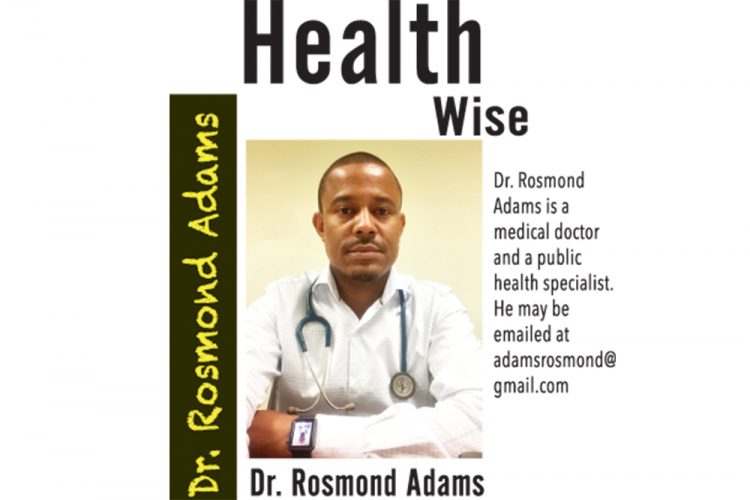Watch out for Severe Dengue

MEDIA REPORTS OVER the weekend stated that a total of 45 persons have so far been hospitalized this year for Dengue Fever. Reports have also indicated that the Ministry of Health is warning of “an above normal increase” in cases this year compared to previous years.
Dengue is a mosquito- borne disease that is spread to people through the bite of an infected Aedes species, either the Aedes aegypti or Aedes albopictus mosquito.
Dengue can cause a wide spectrum of disease. This can range from subclinical disease, that is people who present very mild cases and may not even know they are infected, to severe flu-like symptoms in those infected.
Some people develop severe dengue, which manifest itself with severe bleeding and organ failure. Severe dengue has a high risk of death when not managed appropriately.
Dengue is generally suspected in someone with a high fever (40°C/104°F) and the presence of other signs and symptoms such as severe headache, pain behind the eyes, muscle and joint pains, nausea, vomiting, swollen glands and a skin rash.
With severe dengue, the patient enters what is called the critical phase normally about 3-7 days after illness onset. It is at this time, when the fever is dropping (below 38°C/100°F) in the patient, that warning signs associated with severe dengue can start to appear. Severe dengue is a potentially fatal complication, due to plasma leaking, fluid accumulation, respiratory distress, severe bleeding, or organ impairment.
The warning signs to look for in severe Dengue are
severe abdominal pain, persistent vomiting, rapid breathing, bleeding gums, fatigue, restlessness and blood in vomit.
Once these warning signs appear, close observation is essential so that proper medical care can be provided to avoid complications and risk of death. Maintenance of the body fluid volume is critical to severe dengue care. Anyone with dengue should seek medical advice upon the appearance of any of these warning signs.
If you know that you have dengue, avoid getting further mosquito bites during the first week of illness. Virus may be circulating in the blood during this time, and therefore you may transmit the virus to new uninfected mosquitoes, who may in turn infect other people.
It is important that we play our part to prevent a potential explosion of cases and avoid an outbreak. Dealing with a dengue outbreak whilst dealing with COVID-19 will be complex. Let us do our part in preventing mosquitoes from breeding and protect ourselves from mosquito bites.
Dr Rosmond Adams, MD; MSc (Public Health); M.S (Bioethics) is a medical doctor and a public health specialist with training in bioethics and ethical issues in medicine, the life sciences and research. He is a lecturer of medical ethics and research methods. He is the Director of the Pan Caribbean Partnership against HIV/AIDS (PANCAP). The view expressed here are solely those of the author and does not represent any organization or institution.









